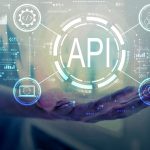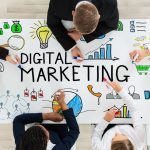Digital marketing refers to the strategic use of digital channels, platforms and technologies to promote products, services or brands to a targeted cult. Unlike traditional marketing styles that calculate on offline channels like print or TV, digital marketing uses online mediums like social media, search machines, dispatch, websites and mobile operations to reach implicit guests. The substance of digital marketing is the capability for businesses to connect with their cult in a substantiated. Measurable and interactive manner, enabling precise targeting, real-time analytics and increased engagement. As the digital geography continues to evolve, digital marketing remains a critical element of ultramodern business strategies, offering unequaled openings for growth, visibility and engagement in an decreasingly digital world.
Introduction to Digital Marketing
Understand the basics
What Digital Marketing Means? Digital marketing encompasses a wide range of marketing conditioning that works across digital channels. Such as the Internet, mobile bias, social media platforms, search engines and target cults to reach and influence. It involves a strategic approach to promoting products. Services and brands through the online medium, driving mindfulness, generating leads and ultimately, converting prospects into guests.
Significance in the ultramodern business geography
What Digital Marketing Means? In an period characterized by rapid-fire-fire technological advancements, changes in consumer gets, and heightened competition, digital marketing has come essential for businesses seeking to thrive in the digital age. As further consumers turn to the internet and mobile bias for information. Entertainment and shopping, digital marketing provides unequaled exposure for businesses to connect with their target cult, produce meaningful connections and drive business growth in a declining digital-centric business
Evolution of Marketing: Traditional vs. Digital
Differ traditional and digital marketing styles
What Digital Marketing Means? Digital marketing, which refers to traditional marketing styles similar as print advertisements, television advertisements. Radio spots and direct correspondence campaigns, has long been a chief of marketing terrain. While these traditional approaches have proven effective in reaching mass cult and erecting brand mindfulness. They frequently warrant the perfection targeting, measurability and interactivity offered by digital marketing channels.
Shift to digital platforms
What Digital Marketing Means? The rise of the internet, social media and mobile technology has unnaturally converted the way businesses connect with consumers and promote their products and services. Digital marketing gives businesses the capability to target specific followership parts. Track crusade performance in real-time and engage with guests on a more particular position. Making it a favored choice for businesses looking to acclimatize to evolving client preferences. Stay ahead of the competition in moment’s digital-first world.
Core Concepts of Digital Marketing
SEO (Search Engine Optimization)
SEO is the process of optimizing a website’s content, structure, and specialized rudiments to ameliorate its visibility and ranking on hunt machine results runners (SERPs). By optimizing for applicable keywords, creating high-quality content, and earning authoritative backlinks, businesses can increase their organic hunt business and attract good leads to their website, eventually driving transformations and profit growth.
SEM (Search Engine Marketing)
SEM involves the use of paid advertising platforms, analogous as Google Advertisements and Bing Advertisements. To promote websites and increase their visibility in quest machine results runners. Through ways analogous as pay- per- click( PPC) advertising and display announcements, businesses can target specific keywords, demographics, and geographic locales. To reach implicit guests at the moment they are laboriously searching for products or services related to their offerings.
Social Media Marketing
Social media marketing revolves around using social media platforms, similar as Facebook, Twitter, Instagram, LinkedIn, and Pinterest, to connect with cult, make brand mindfulness, and drive engagement. By creating compelling content, running targeted advertising juggernauts, and fostering community relations. Businesses can amplify their reach, cultivate brand fidelity, and drive meaningful relations with their target followership on social media.
Content Marketing
Content marketing focuses on creating and distributing valuable, applicable and instructional content to attract and retain a specific following. From blog posts and papers to videos, infographics and podcasts, businesses can use happiness marketing to educate, entertain and inspire their target following, positioning themselves as trusted advisors and affiliates. Leaders in organic business and their persistence when engaging with their digital parcels.
Understanding Digital Marketing Channels
Websites and Blogging
What Digital Marketing Means? A business’s website acts as its digital storefront, furnishing callers with information about its products, services and brand values. By maintaining a stoner-friendly website and publishing precious content on a company blog, businesses can attract. Callers Nurturing leads and converting prospects into guests while establishing credibility and authority within their assiduity.
Email Marketing
Email marketing is one of the most effective channels for nurturing leads, driving transformation, and increasing client engagement. By segmenting dispatch lists, creating content, and delivering targeted dispatches to customers, businesses can engage with their followers at colorful stages of the client journey, providing timely offers, elevation, and valuable insights that drive engagement and loyalty over time.
Pay-Per-Click Advertising (PPC)
PPC advertising enables companies to place bids on keywords and show tailored messages on search engines, social networking sites, and other online platforms. By setting a budget, targeting specific demographics, and measuring campaign performance in real- time. Businesses can drive immediate business to their website, induce leads, and increase deals while maximizing their return on investment (ROI) through strategic bidding and optimization.
Social Media Platforms
Social media platforms offer businesses unequaled openings to connect with their followership, share content, and make brand fidelity. By creating engaging content, fostering community relations, and running targeted advertising juggernauts, businesses can amplify their reach, drive website business, and induce leads while cultivating authentic connections with their target followership across multiple social media channels.
Benefits of Digital Marketing
Increased Reach and Accessibility
Digital marketing enables businesses to reach global cult with unknown ease and effectiveness. Transcending geographical boundaries and time zones to connect with consumers wherever they are. With digital channels, businesses can expand their request reach. Access new demographics, and engage with guests on a24/7 base, driving brand visibility and request penetration on a global scale.
Cost-Effectiveness
Compared to traditional marketing styles, which frequently number high product and distribution costs. Digital marketing offers a more cost-effective means of reaching target cult and driving measurable results. With digital advertising platforms, businesses can set flexible budgets. Target specific demographics, and track crusade performance in real-time, allowing them to optimize their marketing spend for maximum ROI and effectiveness.
Targeted Audience Engagement
Digital marketing allows businesses to deliver largely targeted and substantiated dispatches to specific parts of their followership grounded on demographic, psychographic, and behavioral attributes. By using data analytics and consumer perceptivity. Businesses can conform their marketing dispatches to address the unique requirements, preferences, and pain points of individual guests, driving deeper engagement, and fostering brand fidelity over time.
Key Strategies in Digital Marketing
Creating Valuable Content
Content lies at the heart of every successful digital marketing strategy, serving as a vehicle for delivering value, erecting trust, and nurturing connections with consumers. By producing high- quality, applicable, and engaging content that resonates with their target followership, businesses can establish themselves as study leaders, drive organic business, and separate themselves from challengers in crowded commerce.
Utilizing Data Analytics
Data analytics empowers businesses to decide practicable perceptivity from their marketing sweats, track crucial performance pointers, and make informed opinions to optimize crusade performance and drive business issues. By using tools similar as Google Analytics, Facebook perceptivity, and client relationship operation (CRM) systems. businesses can gain visibility into consumer actions, preferences, and trends. Enabling them to upgrade their targeting strategies and enhance the effectiveness of their marketing enterprise.
Implementing SEO Techniques
SEO serves as the foundation of effective digital marketing, furnishing businesses with the means to enhance their online visibility and drive organic business from hunt machines. By optimizing on-runner rudiments, conducting keyword exploration. And earning high-quality backlinks from authoritative sources. Businesses can ameliorate their hunt machine rankings, increase website business, and expand their digital footmark across the web.
Challenges in Digital Marketing
Overcoming Competition
In a decreasingly crowded digital business, businesses face stiff competition from rivals fighting for consumer attention and request share. To stand out amidst the noise, businesses must separate themselves through compelling value propositions, innovative marketing juggernauts, and superior client gests that reverberate with their target followership and foster brand fidelity over time.
Adapting to Algorithm Changes
Search engine algorithms are constantly evolving in response to shifting consumer actions, technological advancements, and nonsupervisory authorizations. To maintain their visibility and ranking in hunt machine results runners, businesses must stay abreast of algorithmic changes, cleave to stylish practices, and continuously optimize their websites and content to align with hunt machine guidelines and stoner prospects.
Ensuring Data Privacy and Security
With the proliferation of data breaches and sequestration enterprises, businesses must prioritize the protection of consumer data. And safeguard stoner sequestration in their digital marketing trials. By enforcing robust security protocols, carrying unequivocal stoner concurrence, and complying with data sequestration regulations similar as the General Data Protection Regulation (GDPR) and the California Consumer sequestration Act (CCPA), businesses can make trust with their followership and alleviate the threat of reputational damage and legal impacts stemming from data breaches or compliance violations.
Future Trends in Digital Marketing
AI and Machine Learning Integration
Artificial intelligence (AI) and machine literacy technologies are poised to revise the field of digital marketing. Enabling businesses to automate routine tasks, epitomize client gests, and optimize marketing juggernauts with unknown perfection and effectiveness. From prophetic analytics and catboats to recommendation machines and dynamic content optimization, AI- powered results are reshaping the digital marketing geography. And empowering businesses to deliver more applicable, timely, and substantiated gests to their target followership across channels and touch points.
Personalized Marketing Experiences
As consumer prospects continue to evolve, substantiated marketing gests are getting decreasingly important for driving engagement, fidelity, and advocacy among target cult. By employing the power of data analytics, artificial intelligence, and marketing robotization, businesses can deliver acclimatized content, product recommendations. And promotional offers that reverberate with individual preferences and actions, fostering deeper connections and driving measurable business issues.
Voice Search Optimization
With the proliferation of voice-actuated devices and virtual sidekicks similar as Amazon Alexa, Google Assistant, and Apple Siri. Voice search optimization is arising as a critical precedence for businesses seeking to enhance their online visibility and connect with consumers in the age of ambient computing. By optimizing website content for natural language queries, conversational hunt patterns, and original intent. Businesses can ameliorate their rankings in voice search results, prisoner precious business from voice-enabled bias, and subsidize on the growing frequency of voice-grounded relations in consumers’ diurnal lives.
Conclusion
In conclusion, digital marketing represents a paradigm shift in the way businesses engage with consumers. Promote their products, and drive growth in a decreasingly connected and digitized world. By embracing the principles of digital marketing and staying abreast of arising trends and technologies, businesses can work the power of data, creativity, and invention to connect with their target followership more effectively, deliver substantiated gests that reverberate with consumers. And achieve sustainable success in an ever- evolving business.
To know more free Digital marketing courses online: <<Click Here>>







